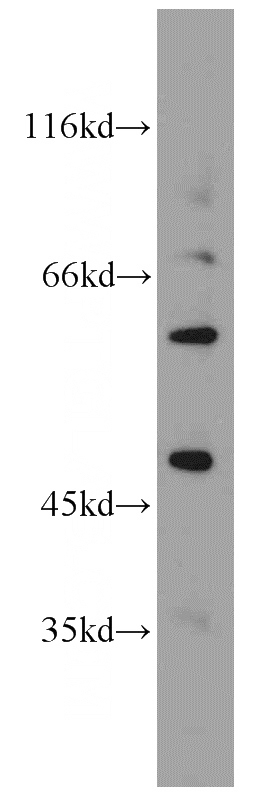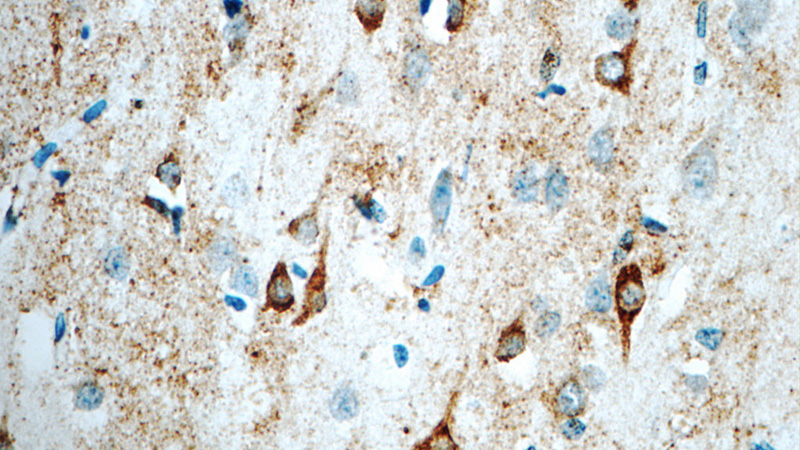-
Product Name
Kir2.1 antibody
- Documents
-
Description
Kir2.1 Rabbit Polyclonal antibody. Positive WB detected in A549 cells. Positive IHC detected in human brain tissue. Observed molecular weight by Western-blot: 50kd,60kd
-
Tested applications
ELISA, WB, IHC
-
Species reactivity
Human,Mouse,Rat; other species not tested.
-
Alternative names
HHBIRK1 antibody; HHIRK1 antibody; hIRK1 antibody; IRK 1 antibody; IRK1 antibody; KCNJ2 antibody; Kir2.1 antibody; LQT7 antibody; SQT3 antibody
-
Isotype
Rabbit IgG
-
Preparation
This antibody was obtained by immunization of Peptide (Accession Number: NM_000891). Purification method: Antigen affinity purified.
-
Clonality
Polyclonal
-
Formulation
PBS with 0.1% sodium azide and 50% glycerol pH 7.3.
-
Storage instructions
Store at -20℃. DO NOT ALIQUOT
-
Applications
Recommended Dilution:
WB: 1:200-1:1000
IHC: 1:20-1:200
-
Validations

A549 cells were subjected to SDS PAGE followed by western blot with Catalog No:112058(KCNJ2 antibody) at dilution of 1:200

Immunohistochemistry of paraffin-embedded human brain tissue slide using Catalog No:112058(KCNJ2 Antibody) at dilution of 1:50

Immunohistochemistry of paraffin-embedded human brain tissue slide using Catalog No:112058(KCNJ2 Antibody) at dilution of 1:50
-
Background
KCNJ2, also named as HHBIRK1, HHIRK1, IRK1, KIR2.1, LQT7 and SQT3, belongs to the inward rectifier-type potassium channel family. KCNJ2 probably participates in establishing action potential waveform and excitability of neuronal and muscle tissues. Inward rectifier potassium channels are characterized by a greater tendency to allow potassium to flow into the cell rather than out of it. Their voltage dependence is regulated by the concentration of extracellular potassium; as external potassium is raised, the voltage range of the channel opening shifts to more positive voltages. The inward rectification is mainly due to the blockage of outward current by internal magnesium. KCNJ2 can be blocked by extracellular barium or cesium. Defects in KCNJ2 are the cause of long QT syndrome type 7 (LQT7). Defects in KCNJ2 are the cause of short QT syndrome type 3 (SQT3). The antibody recognizes the C-term of KCNJ2.
Related Products / Services
Please note: All products are "FOR RESEARCH USE ONLY AND ARE NOT INTENDED FOR DIAGNOSTIC OR THERAPEUTIC USE"
